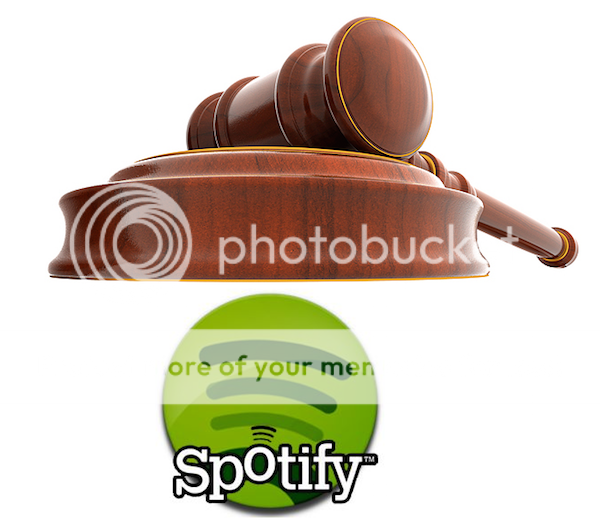

One of the biggest points of contention facing the world’s biggest music streaming services today is the absence of compensation for artist royalties that come from the convenience of having music lover’s favorite tracks constantly at their disposal for a small monthly fee. Spotify has become the poster child for dealing with these kinds of issues, and they just got slammed this week with a lawsuit for a cool $150 million over alleged unpaid royalties. On December 28th, David Lowery, vocal artist rights advocate and the frontman for Camper Van Beethoven and Cracker, filed a class-action lawsuit with the Central District Court of California against Spotify for the sum of $150 million ($30-750,000 per each infringed work and up to $150,000 per song for willful violating the copyright) for knowingly, willingly, and unlawfully reproducing and distributing four of the artist’s copyrighted compositions without obtaining mechanical licenses.
The lawsuit against the music streaming giant claims that Spotify unlawfully provided and distributed copyrighted material to its 75 million subscribers without obtaining proper licensing. It also states that the service failed to identify or locate the owners of those compositions for payment and did not issue a notice of intent to employ a compulsory license. The lawsuit comes amidst ongoing settlement negotiations between Spotify and the National Music Publishers Association over allegedly allowing users to play music that hasn’t been properly licensed and doing so without making royalty payments to music publishers and songwriters. Aware of possible claims like Lowery’s, Spotify created a $17 million to $25 million reserve fund to pay royalties for pending and unmatched song. Spotify’s global head of communications and public policy, Jonathan Prince, responded to the lawsuit by stating:
“We are committed to paying songwriters and publishers every penny,” “Unfortunately, especially in the United States, the data necessary to confirm the appropriate rightsholders is often missing, wrong, or incomplete. When rightsholders are not immediately clear, we set aside the royalties we owe until we are able to confirm their identities. We are working closely with the National Music Publishers Association to find the best way to correctly pay the royalties we have set aside and we are investing in the resources and technical expertise to build a comprehensive publishing administration system to solve this problem for good.”
Source: Billboard





